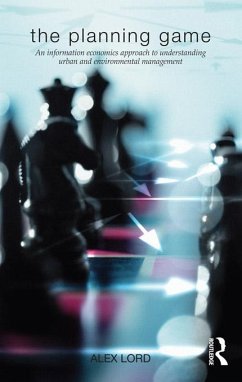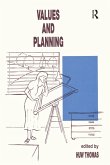Dialogue between economics and planning theorists has been, until now, rare. Lord argues that information economics' tool kit, game theory - including well-known examples such as the Prisoners' Dilemma, the Stag Hunt game and Follow the Leader - offers an analytical framework ideally suited to unpacking planning processes.
This use of game theory to understand how counterparties interact draws together two distinct bodies of literature: firstly the mainstream economics treatment of games in abstract form and, secondly, accounts of actual bargaining in planning practice from a host of international empirical studies.
Providing a novel alternative to existing theories of planning, The Planning Game provides an explanation of how agencies interact in shaping the trajectory of development through the application of game theory to planning practice.
Dieser Download kann aus rechtlichen Gründen nur mit Rechnungsadresse in A, B, BG, CY, CZ, D, DK, EW, E, FIN, F, GR, HR, H, IRL, I, LT, L, LR, M, NL, PL, P, R, S, SLO, SK ausgeliefert werden.









